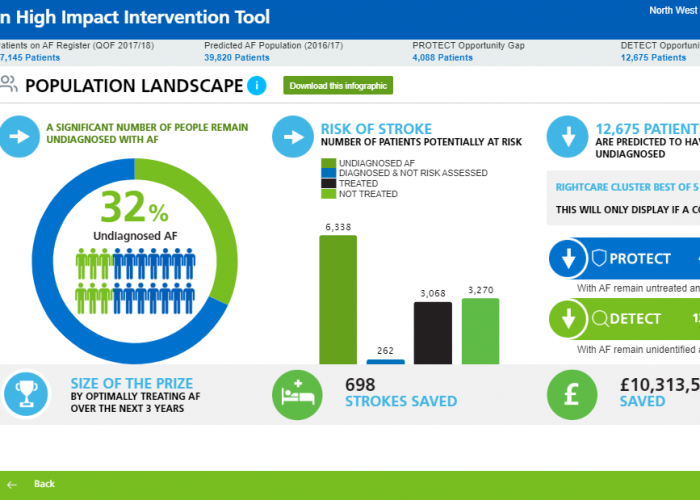On Mental Health Awareness Week, Sadie Myhill, ICHP Senior PPIE Lead, reflects on a recent project commissioned by Keeping Well North West London on addressing barriers to their male staff accessing mental health support.

In the UK, men present with mental health problems less than women. Nationally, at any one time, 12.5% of men report having a mental health condition, such as depression or anxiety disorder, compared to about 20% women – and only 36% of referrals to NHS talking therapies are for men. But we know this isn’t the full picture. Three times as many men as women die by suicide.
And while we already know access to mental health care across the country can be difficult – demand is high and wait times can be long – we don’t often think of our NHS staff, the people providing some of that care, as our patients and service users. As well as wanting our staff, colleagues and friends to be well, evidence shows that there is a clear link between staff wellbeing and patient experience. As the old saying goes, “you can’t pour from an empty cup” and this is particularly true for our NHS workforce – having healthy, happy staff benefits patient care. Our workforce are the NHS’ number one resource, so how do we make good mental health for staff our number one priority? For Mental Health Awareness Week, we’re reflecting on a recent project with men’s mental health and wellbeing at its heart.
Prioritising wellbeing services
Last year, we were commissioned by the Keeping Well North West London team and North West London ICB to work collaboratively on a staff engagement project. Keeping Well North West London is a free, confidential health and wellbeing support service for NHS, social care, and care sector staff across NW London. Nationally, according to the 2021 NHS staff survey and the 2021 Medical Workforce Race Equality Standard report, Black, Asian and Minority Ethnic (BAME) staff are experiencing a higher level of bullying, harassment or abuse, discrimination, issues with equal opportunities, and career progression, compared to their white counterparts. And locally, male staff were proportionally underrepresented by those accessing Keeping Well North West London services.
So how do we better understand and address the barriers that prevent male staff from BAME backgrounds accessing Keeping Well North West London, as well as better tailor the service to meet their needs?
Giving staff a voice is key
Our engagement activity was split into three parts – firstly desktop research to learn from insights from other work in this space, in parallel to an online staff survey. Both of which were crucial in helping us understand the barriers to accessing services. A survey, for time poor NHS staff, allowed us to contact and hear from as many staff as possible, and a range of responses across demographics like age, ethnicity or length of service, was helpful in allowing us to build a more rounded picture of the issues. We heard from 232 members of staff, with representation across all trusts in NWL and across a range of demographics. And while a useful tool to help us draw out themes and trends, a survey doesn’t necessarily paint the full picture. It’s just the start. Hearing from staff is fundamental to not only fully addressing the barriers but also building better solutions, so follow up 1-2-1 interviews with staff were key.
We conducted 17 in-depth interviews with members of staff, prioritising those who were previously unaware of the service. These 1-2-1 conversations allowed us to hear from staff more fully on their own experiences, and to share their personal reflections in a safe and confidential space. That was essential in allowing us to interpret the survey data, and gave us a much deeper understanding of participant’s lived experiences. These staff told us they hadn’t heard of the service, lacked time to access it, and perceived wellbeing as being a low priority by their employer. One interviewee told us: “A lot of initiatives… there’s no action, no resources behind it. Often I think initiatives are just to look good.”
Staff-sourced solutions help address problems meaningfully
Insights from the survey and in-depth interviews allowed us to start shaping our understanding of the barriers to access, but we still needed to test our conclusions. Small staff focus groups were a great space for ideation – a chance for us to playback what we’d heard, identify solutions and form recommendations. It enabled us to ask, ‘here’s what you’ve told us, these sound like the pain points, how would you like your organisation to address this?’
Having staff shape the solutions helps us create better recommendations that have more impact for staff. When looking at pathway redesign, or clinical projects, we’re sure to include patient voice as a “must-have”. For Keeping Well North West London, their staff were their service users, and their engagement throughout the programme was essential in ensuring that our recommendations were relevant, realistic and really addressed their barriers. That collaboration with both the Keeping Well North West London team and the staff across NW London was crucial in forming our recommendations which, we hope, will improve both access to and support from Keeping Well North West London. These included protected time for staff to access services and, a focus on first contact, and reassurances about confidentiality.
Addressing the barriers to men accessing mental health services
Keeping Well North West London provide free, fast and confidential psychological support to all NHS staff living or working across NW London. To address the barriers preventing BAME male staff from accessing services, our recommendations, created in conjunction with NHS staff, span both an organisational and service level – though are interconnected and dependent on one another.
At both levels, a commitment to wellbeing being prioritised as a focus is a must. One interviewee told us: “Wellbeing is just really important. I think it drives everything and underpins everything we do – the quality, the consistency, our ability to stay resilient and robust under different pressures.”
We hope that the staff involved in this project, whose insight is crucial in the improvement of these services for others, feel listened to. And that this work helps not only improve the visibility of this brilliant service, but also the support for those who most need it.
For further information about Keeping Well North West London please visit their website.
If you have any questions about our work on this project, or our Patient and Public Involvement and Engagement (PPIE) work more generally, please contact Sadie Myhill.



